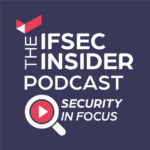As a Chartered Security Professional, I was fascinated to attend the International NATO Post 2014 Conference, where I experienced the broader meaning of the word “security,” often termed human security or political security.
The conference provided a great insight in terms of how occurrences on the world stage impact on our profession and the risks they pose.
I’m sure everyone knows of NATO, the North Atlantic Treaty Organization, an inter-governmental political and military alliance based on the North Atlantic Treaty signed on 4 April 1949.
Also known as the Atlantic Alliance, NATO was founded in the aftermath of the Second World War to counter the threat posed by the communist Soviet Union, mitigate nationalist militarism in Europe, and encourage European political integration.
With the demise of the Cold War, NATO’s focus initially revolved around Eastern Europe’s transition from communism and the role of former Soviet states, engaging in its first major crisis in Bosnia and Herzegovina.
Then, following on the terrorist attacks against the United States on 9/11, NATO — for the first and, thus far, only time — invoked Article 5, which states that “an armed attack against one state is deemed an armed attack against all member states.”
Post-9/11, NATO has adapted and evolved, but its key purpose continues to be safeguarding the freedom and security of its current 28 member countries.
The Atlantic Treaty Association
An NGO established back in 1954, the ATA evolved by way of a number of loosely affiliated organizations from NATO member countries, which joined together to advance peoples’ understanding of NATO’s important and growing role in international affairs, playing a key role in furthering public debate and discussion related to NATO’s Cold War activities.
With the collapse of the Soviet Union and the Warsaw Pact in the 1990s, ATA, like NATO, was set to change.
Today, ATA is fully engaged in supporting democracy and security in the Euro-Atlantic zone and beyond. It assists dialogue among political leaders, academics, and diplomats from established locations in North America, Western Europe, and Turkey as well as new members from the former Warsaw Pact countries, the Balkans, and South Caucasus. It also furthers the values ratified in the North Atlantic Treaty: Freedom, Liberty, Peace, Security, and the Rule of Law.
Through discussion and political channels and acting as a forum for debate where member countries can realize common interests and democratic goals in a fast-changing world, ATA plays an influential role in NATO policies and is fully engaged in a number of NATO initiatives.
Focus of the conference
The conference itself focused on Afghanistan and lessons learned, the transatlantic bond, NATO-EU cooperation during times of financial austerity, and the future role of NATO in recognizing and addressing international challenges and threats (ranging from terrorism and nuclear proliferation through to piracy, cyberattacks, and the disruption of energy supplies).
This event brought together 250 experts and delegates from 38 countries, along with Brussels-based policy makers, government officials, military officers, diplomatic representatives, journalists, and young professionals to help define the role of NATO going forward.
When I first became involved in security almost 40 years ago, crime seemed quite simple. Today, it’s clear that globalization and technological advances are changing the world, the political landscape, and the criminal menace, in turn creating both business opportunities and threats. This is raising fear and uncertainty around the world, thereby moving the focus of security for everyone.
Civil unrest and conflict are widespread, increasing antisocial behaviour and acts of terrorism, then, in turn, increasing criminal acts. Of course, terrorism has to be funded, often through criminal means such as major fraud. Think cyber-security or drugs, from the crime lords to the drug users — who usually fund their habit through criminality — and you begin to see the connections.
As the risk landscape becomes increasingly unpredictable due to globalization, political instability, cost sensitivity, organized crime, pervasive regulatory compliance, technological advances, and natural disasters, the importance of the role played by the security profession increases further in terms of protecting people and assets, whatever the type of practitioner — a security manager, consultant, technology vendor, or security officer.
Moreover, the modern security professional needs to see the bigger picture and absolutely understand an organization’s business.
Security: a complex and diverse subject
Today, it’s evident that security is a complex and diverse subject, not to mention a constantly moving objective. As a discipline it’s a contributory factor towards business success and, as such, needs to be valued as a business process that’s actively championed from the very top of an organization.
Everyone needs to adopt the security culture and understand its business value such that it’s appreciated in the same way as health and safety, quality and equality, etc. This status quo can only be achieved by raising the standing of the security profession.
Professional qualifications and Chartered status are the individual’s path towards earning the respect of fellow business professionals. It’s a demonstration that a given individual can add value to his or her organization through best-practices in security.
Listen to the IFSEC Insider podcast!
Each month, the IFSEC Insider (formerly IFSEC Global) Security in Focus podcast brings you conversations with leading figures in the physical security industry. Covering everything from risk management principles and building a security culture, to the key trends ahead in tech and initiatives on diversity and inclusivity, the podcast keeps security professionals up to date with the latest hot topics in the sector.
Available online, and on Spotify, Apple Podcasts and Google Podcasts, tune in for an easy way to remain up to date on the issues affecting your role.

